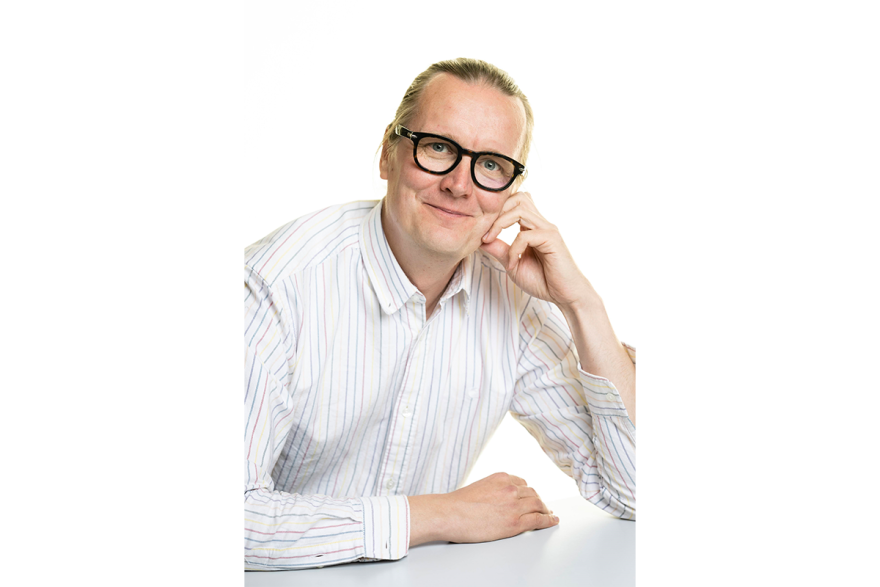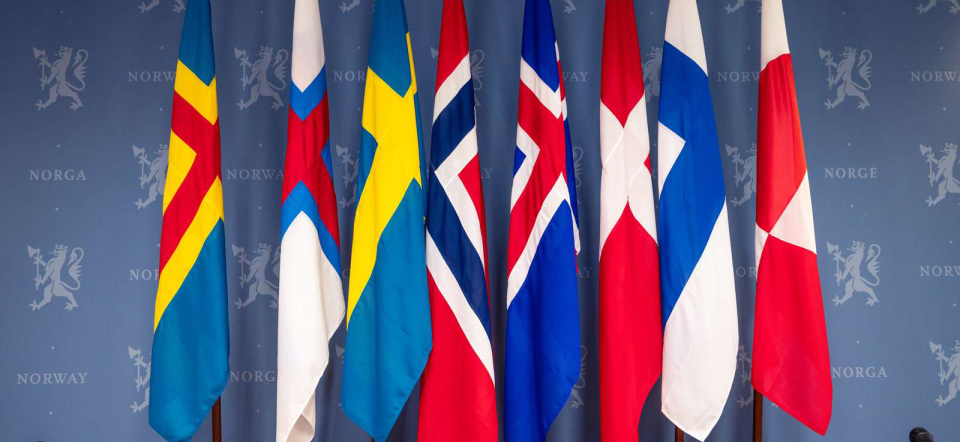The Nordic university network ReNEW (Reimagining the Nordic Region in an Evolving World) has received funding from NordForsk for the period 2018 to 2024. ReNEW was established to strengthen co-operation in developing groundbreaking and outstanding Nordic research.
Recently, they published Handbook of Nordic Co-operation.
Johan Strang, professor of Nordic studies at the University of Helsinki, was involved in the project. You may also have heard his voice on the radio programme Norsken, Svensken og Dansken, where he has been a guest, or read his columns on Nordic co-operation in the Finnish media.
We met up with him to take the temperature of Nordic co-operation in 2025.

How important is Nordic co-operation today, given the world we live in?
"All the Nordic countries agree that they need each other. In a short period of time, a lot has happened on the foreign policy scene that has brought the Nordic countries closer together. This is partly due to Finland and Sweden's NATO membership, but also to the threat from Russia and the United States' actions towards Greenland and Denmark.
If we go further back in history, Nordic co-operation has often failed because we have viewed the world differently and had differing perceptions of threats, which has driven us further apart. Denmark has been most concerned about Germany, while Finland and Sweden have been concerned about Russia, and Norway has had the luxury of being most concerned about Sweden. In other words, we have not really had the same view of the world, but we do now to a large extent.
On the one hand, we all perceive Russia as a threat, and on the other hand, we have also begun to see Europe in a much more uniform way than we have done before. While Finland tried to be the most pro-European country, participating in everything that came from the EU, Sweden and Denmark were a little more sceptical, and Norway was not involved at all. Today, we are quite unanimous in our view of Europe. It is important that we have European co-operation as a common platform and that we participate in it as much as possible and try to influence European politics, but when it comes down to it, I still think we need our own little Nordic group."
Do you have an example of this?
"I remember the images when Trump began threatening Greenland and said he wanted control of the country, after which Denmark's Prime Minister Mette Frederiksen went on a diplomatic tour of Europe. She shook hands with NATO Secretary General Mark Rutte, Germany's then Chancellor Olaf Scholz and French President Emmanuel Macron. But she manifested Nordic solidarity through a picture on social media where she sat around a dinner table with Alexander Stubb, Ulf Kristersson and Jonas Gahr Støre. I think it was a pretty cool picture of how to show that the Nordic countries are an even deeper community than Europe, and I really think we need that these days when there's so much turmoil in the world. If you talk to any foreign minister, prime minister or diplomat who has worked in major international circles, you will discover that when it comes down to it, there are only four other countries in the world they can really trust, and those are the Nordic countries.”
You said that the rhetoric surrounding Nordic co-operation is more uniform than before. If this is mainly because the world around us is unstable, what will happen when it becomes more stable again?
"That's a good question. Those who are interested in Nordic co-operation should really strike while the iron is hot. If we don't take advantage of this situation, where even our prime ministers and all political parties agree that Nordic co-operation is necessary, when should we do it? And if we do not succeed in strengthening co-operation and making decisive progress in areas such as research, culture and working life, and seize the opportunity now that it presents itself, when should we do it? Unfortunately, we have been rather poor at this historically. We succeeded in advancing Nordic co-operation in the 1950s and 1970s when there was momentum, but since then it has not received a decisive push. I have no doubt that Nordic co-operation will become less relevant as the world becomes more peaceful, unless we ensure that we are at a different level than we are today.”
At NordForsk, we fund Nordic research. How important do you think Nordic research co-operation is?
“The research co-operation funded by NordForsk is extremely important, and it is important that Nordic partners have the opportunity to apply for funding from NordForsk, but it represents a very small part of the total co-operation that takes place within research in the Nordic region.
Nordic research collaboration is therefore important, but it varies depending on the field of research. The smaller the field you work in, the more important it is to have Nordic colleagues and to be able to contact a researcher working on the same things in another Nordic country. If, on the other hand, you work in the natural sciences or medicine, I think it is less important whether you collaborate at the Nordic or international level, but it is still quite natural to contact your colleagues in neighbouring countries. I am sure there are many ‘everyday networks’. This also applies to political science and other subjects that are more closely linked to national traditions. It is natural to ask what Swedish or Danish researchers have written on a given topic.”
At NordForsk, we fund research that creates Nordic added value. That is what distinguishes us from national funding bodies. But how can we talk about Nordic added value in research?
“On behalf of NordForsk, we have conducted several studies on the concept of Nordic added value and Nordic utility. This concept was invented in the 1990s to cut the budget of the Nordic Council of Ministers. Anything that did not provide a Nordic advantage or Nordic added value was cut. It was basically a cost-cutting measure, and I see it primarily as a delimiting concept.
I believe that if NordForsk wants to take a step towards creating something bigger out of Nordic research collaboration, then I think it would be sensible to learn from the European research collaboration, for example ERC-grants, Horizon-projects and the European University Institute in Florence. They carry out a lot of research that could just as easily be done at national level, but which is world-class – truly groundbreaking research. I believe that this is the direction we should be heading in, rather than thinking of Nordic added value as a limitation. I can well understand that in the 1990s and early 2000s and 2010s, people were almost too busy justifying Nordic co-operation. What was the only goal? Well, it was Nordic added value. Today, I don't think we need to think that way. Everyone believes that Nordic co-operation has its own value and that it is important.”
Read also the column in Hufvudstadsbladet: Världens mest integrerade region – för 60 år sedan
Read the article: Scandinavian associations were forerunners of Nordic co-operation





